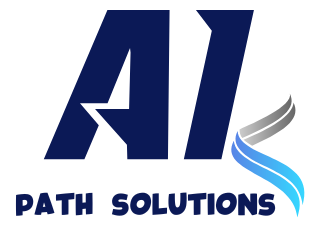In recent years, Artificial Intelligence (AI) has made significant strides in various industries, and human resources (HR) is no exception. The integration of AI technologies into HR practices is revolutionizing how organizations manage talent acquisition, employee engagement, performance management, and workforce planning. This article explores the transformative impact of AI in HR, highlighting its benefits, challenges, and future implications.
Streamlining Recruitment Processes
One of the most notable applications of AI in HR is in recruitment. Traditional recruitment methods often involve extensive manual processes, including reviewing resumes, conducting initial screenings, and scheduling interviews. AI streamlines these processes by automating repetitive tasks, allowing HR professionals to focus on more strategic activities.
Resume Screening and Shortlisting
AI-powered tools can analyze resumes at scale, identifying the most qualified candidates based on specific job requirements. By using natural language processing (NLP) algorithms, these tools can assess keywords, skills, and relevant experience, enabling HR teams to shortlist candidates more efficiently. This not only reduces the time taken to fill positions but also minimizes the potential for bias in the initial screening phase, promoting diversity and inclusivity in hiring.
Predictive Analytics for Candidate Assessment
AI can enhance candidate assessment by leveraging predictive analytics. By analyzing historical data and performance metrics, AI systems can identify patterns that correlate with successful employee performance. This data-driven approach allows HR professionals to make informed decisions about candidate suitability, leading to better hires and improved retention rates.
Enhancing Employee Engagement and Experience
AI is also playing a crucial role in enhancing employee engagement and overall experience within organizations. By harnessing AI technologies, HR departments can create personalized experiences that cater to individual employee needs and preferences.
Chatbots for Instant Support
AI-powered chatbots are increasingly being deployed in HR to provide real-time support to employees. These chatbots can answer common queries related to benefits, policies, and procedures, freeing HR personnel from answering routine questions. Employees benefit from instant access to information, resulting in a more satisfying and efficient workplace experience.
Personalized Learning and Development
AI algorithms can analyze employee skills, career aspirations, and learning preferences to create tailored development plans. By offering personalized training recommendations and learning paths, organizations can invest in their employees’ growth, leading to increased job satisfaction and retention.
Performance Management and Feedback
The traditional performance management process often involves annual reviews, which can be time-consuming and subjective. AI is transforming this process by enabling continuous feedback and performance tracking.
Real-Time Performance Monitoring
AI tools can track employee performance in real time, analyzing various metrics such as productivity, collaboration, and project completion rates. This data allows managers to provide timely feedback and recognition, fostering a culture of continuous improvement. Employees benefit from receiving constructive feedback more frequently, enabling them to adjust their performance accordingly.
Data-Driven Decision Making
AI provides HR professionals with valuable insights into workforce performance, allowing for data-driven decision-making. By identifying trends and patterns, HR can make informed decisions regarding promotions, raises, and development opportunities. This transparent approach contributes to a more equitable and motivated workforce.
Challenges and Ethical Considerations
Despite the numerous advantages of AI in HR, challenges and ethical considerations must be addressed.
Data Privacy and Security
The use of AI in HR requires access to sensitive employee data, raising concerns about privacy and security. Organizations must ensure that they comply with data protection regulations, such as the General Data Protection Regulation (GDPR), to safeguard employee information.
Bias in AI Algorithms
AI systems are only as good as the data they are trained on. If historical data contains biases, AI algorithms may inadvertently perpetuate these biases in recruitment and performance evaluations. To mitigate this risk, organizations must regularly audit and refine their AI systems, ensuring that they promote fairness and inclusivity.
Dependence on Technology
While AI can enhance HR processes, there is a risk of over-reliance on technology. Organizations must strike a balance between AI-driven insights and human judgment, recognizing the value of personal interactions and emotional intelligence in HR.
The Future of AI in HR
The future of AI in human resources is promising, with continued advancements expected to shape the landscape of talent management. As AI technologies evolve, HR professionals will likely see even more innovative applications that enhance efficiency and effectiveness.
Integrating AI with Human Judgment
The most successful HR strategies will combine AI insights with human judgment. By leveraging AI to handle routine tasks and data analysis, HR professionals can focus on strategic initiatives that require empathy, creativity, and interpersonal skills. This hybrid approach will lead to a more engaged and productive workforce.
AI for Workforce Planning
In the future, AI will play a crucial role in workforce planning. By analyzing workforce trends and predicting future needs, AI can help organizations align their talent strategies with business goals. This proactive approach will enable companies to adapt to changing market conditions and stay competitive.
Enhanced Employee Well-Being
AI technologies have the potential to enhance employee well-being by providing insights into work-life balance, mental health, and job satisfaction. Organizations can use AI-driven analytics to identify areas where employees may be struggling and implement targeted interventions to support their well-being.
Conclusion
AI is transforming the field of human resources, offering innovative solutions to streamline recruitment, enhance employee engagement, and improve performance management. While challenges such as data privacy and bias remain, the benefits of AI in HR are undeniable. By embracing AI technologies and integrating them with human judgment, organizations can create a more efficient, equitable, and fulfilling work environment for their employees. As the landscape of work continues to evolve, the role of AI in HR will be pivotal in shaping the future of talent management.
